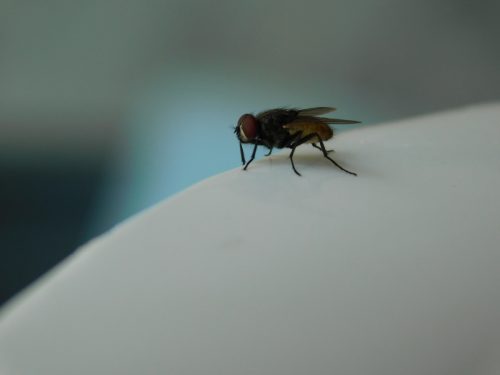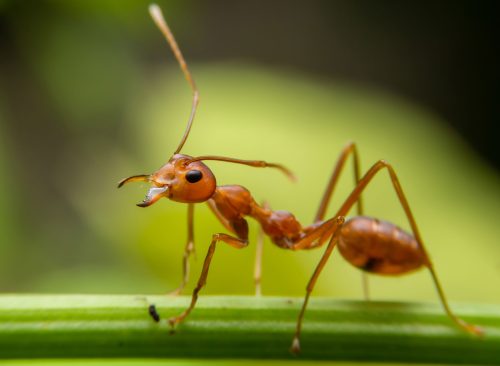The Zombie Fungus From “The Last of Us” Is Real, Scientists Say—Here’s What We Know

HBO’s new hit drama series The Last of Us has become a water-cooler show on the strength of its storytelling—it depicts a society in decline after an infectious fungus begins turning people into zombies. But experts say the show may deserve to become a conversation piece for another reason: That mind-controlling fungus actually exists.
NPR reports that Ophiocordyceps unilateralis, also known as cordyceps or “zombie-ant fungus,” is capable of infecting insects, draining the host body completely of nutrients and filling it with spores that enable the fungus to reproduce. It also compels the affected bug to spread the infection to others. But nothing for humans to worry about. Right? Read on to find out what the experts say.
Just One of Many Mind-Control Fungi

Bryn Dentinger, a biology professor at the University of Utah and curator of mycology at the Natural History Museum of Utah, told NPR the fungus is one of the best-known organisms with mind-control capability. Experts aren’t sure why it happens, but there are some theories.
“There seems to be some combination of physical manipulation of muscle fibers, for example, possibly growth into the brain itself, that can impact its behavior,” he said. “But there’s also very likely some sort of chemical attack on the host, either small molecules, or proteins or some other things, that end up manipulating brain behavior.”
A Few Crucial Differences Between Sci-Fi and Reality

Dentinger told NPR there are some differences between cordyceps and the fungus portrayed on the show. Cordyceps doesn’t infect through the mouth, and the infected aren’t connected to one another through a network. And thankfully, the fungus can’t infect humans.
“Our body temperatures are high enough that most organisms, their proteins would denature at that temperature and so they can’t survive in our bodies,” Dentinger said. But that doesn’t mean there’s no cause for concern.
Will Global Warming Make Mind-Control Fungi Stronger?

Dentinger told NPR that certain types of fungus can withstand higher temperatures and are thereby able to infect humans. And climate change is enabling some fungi to withstand higher temperatures. So it’s possible that someday, a mind-controlling fungus that can infect humans won’t just be science fiction.
“That may be one reason why we’re seeing more fungal infections in human humans, but again, to date, none of them are cordyceps,” he said. “However, maybe that will happen in the future, but, at the moment, that is not a possibility.”
A Fungus That Infects the Common House Fly

If the prospect sounds like a pretty gruesome storyline, you’re right. In November 2021, Live Science reported on Entomophthora muscae, a fungus that infects the common house fly. It infects and controls the minds of flies, before consuming them from the inside out.
Not only are the flies compelled to travel to high altitudes with wings outstretched, thereby spreading the infectious spores more easily, but infected females also turn into “zombie flies” and emit a chemical that induces males to mate with their corpses, becoming infected themselves.
A Fungus Within a Fungus

And last November, CNN reported vividly on the behavior of Ophiocordyceps, which has dozens of strains, as it affects ants: “The organism hijacks the body and brain of its ant host, mind-controlling it into abandoning its nest and climbing a nearby tree,” the news outlet said.
“There, the infected ant clamps its jaws around a leaf, dangling above the forest floor, and dies in a matter of days as the fungus digests it. Bursting through its host’s body, the fungus then sends down a shower of spores to infect the next generation of ant prey.” It turns out the fungus is infected with a fungus of its own, which scientists believe keeps the zombie production running.